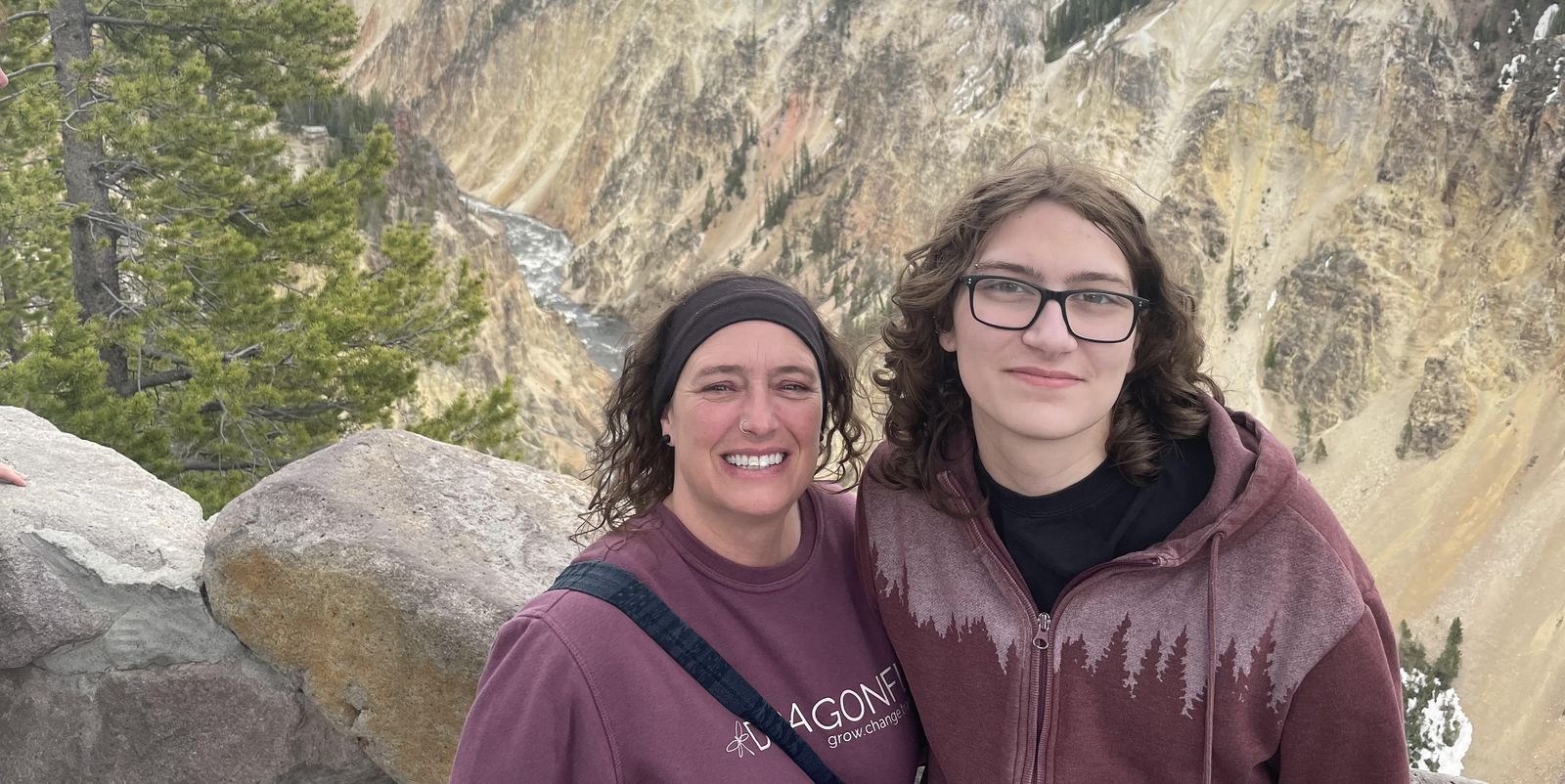Traveling with his mom and working at a job he loves have been among some of the highlights for Liam Holden in the last year or so. He says he feels like a completely different person today, after going through a rough time in his early teens.
When Liam was younger, he experienced severe mental health challenges, ranging from uncontrollable emotions to withdrawal from people around him. He suffered two overdoses, several self-inflicted injuries, and attempted suicide twice due to mental health distress.
“There was a lot of time spent where I thought ‘why is this happening to me?’” says Liam. “I had a lot of confusion and questions; I wasn’t sure how to think of things because there was so much going on and I couldn’t process it all. I was in a lot of pain.” He was eventually diagnosed with borderline personality disorder, depression and anxiety.
Starting at age 12, Liam was admitted to the hospital 10 times. He recalls the longest stay at our Adolescent Psychiatry Unit at the Regina General Hospital was a month. It happened at the beginning of the COVID-19 pandemic, making his path to recovery even more difficult as he could not see his family.
Liam says he didn’t want to be there, and the medical staff did their best to explain why it was necessary, over and over. He simply could not understand the reasoning; he just wanted to go home. “In the end, it was the most helpful time for me as I became very focused on getting better because I had nothing else to do,” remembers Liam. “It forced me to take things into my own hands and make improvements. It definitely felt like rock-bottom; I had no choice but to go up.”
Today, Liam remains complimentary of the care he received at the unit.
“In the moment it felt unfair and it was hard to understand, but in hindsight, it got me where I needed to be,” Liam says. “The care I received at the unit is very much the reason why I’m alive today.”
Liam credits his medical support team including psychiatrists Dr. Haque, Dr. Damodharan and Dr. Soyemi, along with psychologist Alexis Arbuthnott for his recovery. He also appreciated the team of supportive nurses on the unit whom he remembers fondly.
“There were a lot of times the nurses would go out of their way to make me feel at home,” says Liam. “I remember one nurse who would take me to the ping pong table and play with me for 30 minutes every day. It made me feel human, to get out of my room and be active.”
Today, Liam sees a therapist every two weeks and has been stable on his medication. Overall, he says he’s become one of the calmest people in his own life.
“I used to be the most anxious, most depressed and most dysfunctional person in the room,” he says. “Now, I’m the one that’s usually able to talk someone out of a hard situation or help calm people down.”
Liam’s mother, Crystal, says they are forever thankful for the unit. “I attribute Liam’s recovery to his dedicated staff team, as well as his willingness to want to get better.” She says making the unit feel like home with comfort items, books and activities was memorable for Liam. It helped him to feel like he was in a home environment and not a hospital. “That and the continuum of care played a vital role in his recovery,” adds Crystal.
Hospitals of Regina Foundation invests in a number of items to help patients requiring care in the Adolescent Psychiatry Unit such as furniture for the individual rooms and common area, as well as art supplies, journals, and MP3 players for activities, with plans to make additional priority investments in 2025.
“Stories like Liam’s serve as a reminder that investing in the health of our youth comes in many different forms,” says Dino Sophocleous, president and CEO of Hospitals of Regina Foundation. “Our mission is to support the best possible mental health care for those who need it, right here at home.”
Adolescent Psychiatry Unit
Every year, our Adolescent Psychiatry Unit sees upwards of 200 patients ranging from eight to 18 years of age. It provides services for kids who are in acute crisis. The unit is a vital component of Regina’s pediatric programs and a key priority for our Foundation. Liam was one youth who said if it wasn’t for the unit, he wouldn’t be here to tell his story.


